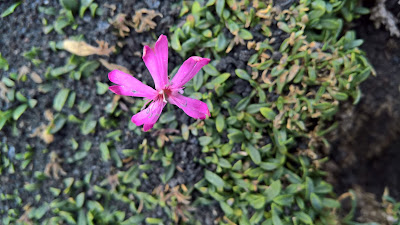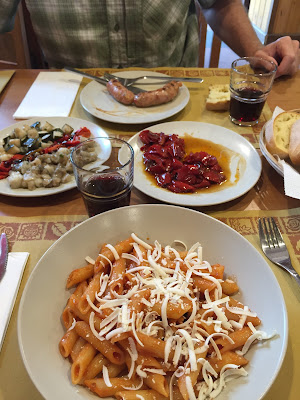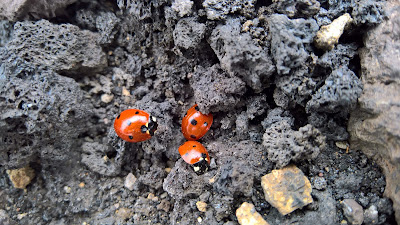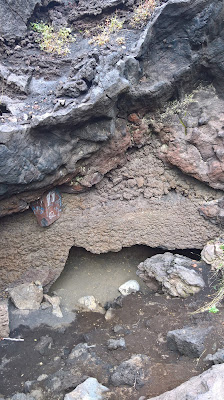

Hike Notes
Length: 6.8 km
Duration: 3 hours
Elevation: 631 m, 1.733 m at start, 2.167 m at max
Location: Italy, Region of Sicilia, Province of Catania, Etna East, Sant’Alfio
Overview
This was our last hike of our Sicilian trip, a cool and gray day. You can never tell with Mount Etna. We were actually happy for the weather, which added heightened the already the surreal landscape of the Serracozzo. At times we thought we were in Iceland.
The hike is well-documented on the Etna Tracking site, where you can download GPS tracks. We first followed the indications for La Grotta di Seracozzo and then continued on to make a clockwise loop back to the rifugio following the Sentiero di Serracozzo. The Rifugio Citelli is on the Strada Regionale Mareneve road and easy to get to. After the hike, we had a nice lunch at the rifugio.
Plants and Landscape
Soon after leaving the rifugio parking lot (heading west), you find yourself walking within beautiful birch stands, [Betulaceae] Betula aetnensis - “betula dell’Etna”. Contorted, cream-colored trunks stand out against the black volcanic rock and soil. This birch is endemic to the east side of Mount Etna’s lava terrain.
After passing out of the birch stands, you start to notice strange mounds. Moving closer, you’ll notice they are not quite so soft and inviting as they seem from afar; they have nasty spines. These mounds are [Fabaceae] Astracantha sicula - “spino santo” or “astrogalo siciliano”. This pea family plant is, like the birch, only found only on Mount Etna.
Finally, at this time of year we saw a lot of spent [Asteraceae] Tanacetum siculum flowers and just a few still-in-bloom [Caryophyllaceae] Saponaria sicula, both endemic to Sicily. The species name sicula and siculum means “of Sicily”.
Astracantha sicula


Left: Mounds of Astracantha sicula on Serracozzo. Right: Astracantha sicula pushing up through lava rock.


Betula aetnensis - “betula dell’Etna”


Left: Saponaria sicula flower. Right: A type of stone called in dialect pietra cicirara, or "chickpea stone".


Left: Map showing three Etna hikes we took. Right: Lunch at Rifugio Citelli.


Left: View into Valle del Bove from Sentiero 723. Right: Slip sliding down the hill back to Rifugio Citelli, visible in the distance.


Left: Fluorescent greens of grasses and Astracantha sicula along the trail. Right: Ladybird beetles (or Ladybugs) huddling in the lava on the Serracozzo.


Far left: Entrance to the Grotta di Serracozzo. Center left: Inside the Grotta di Serracozzo. Center right: Down the road from Rifugio Citelli you can visit the Grotta dei Ladroni where this birch tree grows out one of the openings of the grotta. Far right: Steps in the Grotta dei Ladroni.




No comments:
Post a Comment
All comments are moderated. If your comment doesn't appear right away, it was likely accepted. Check back in a day if you asked a question.